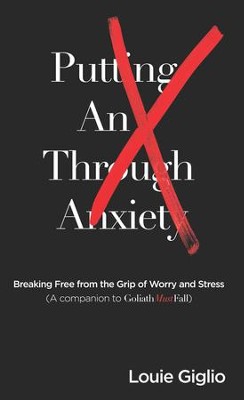Difficult People and Conflict Are a Part of Life

Ron Edmondson
Description
If relationships are normal, then conflict is inevitable!Because life involves dealing with people, and because people come into relationships and conversations with their own interests and perceptions, there is going to be conflict. It’s inevitable. But being in a conflict with someone doesn’t mean you are at an impasse. There are biblical ways of handling conflict so you don’t allow disagreements to ruin your relationships. Tips such as understanding your conflict, examining your motives, and considering the other person’s point of view will help you handle conflicts in a healthy way. In fact, Ron Edmondson explains just that in this post.
"10 Suggestions for Handling Conflict in a Healthy Way" by Ron Edmondson
Where life involves people — whether among family, friends or co-workers — there will be potential for conflict.
Any disagreement there?
Want to fight about it?
In fact, if relationships are normal, conflict is inevitable.
But, conflict doesn’t have to destroy relationships. It can actually be used to make relationships better. That takes intention, practice — and a whole lot of grace.
In an organizational sense, conflict is certainly a huge part of a leader’s life. Even in a pastor’s life.
It seems to reason that learning to deal with conflict successfully should be one of our goals.
Here are 10 suggestions to effectively handle conflict:
Understand the battle. Make sure you understand the real source of the conflict. Many times we address symptoms, but we really aren’t even addressing with the real issue. That wastes time, frustrates people, and makes the conflict linger longer. It’s usually a heart issue that is controlling everything being said. (Proverbs 4:23) Discovering that is key. Make sure you ask lots of questions and attempt to clarify the root issue of the conflict. (This is where a third party help is often needed.)
Find the right time and place. When emotions are high, it is not good timing for dealing with conflict. Personal conflict should not be handled in public. Don’t be afraid to schedule a time to address the conflict.
Examine yourself first. Sometimes the issue is personal to you and you are only blaming others for your problem. That’s not fair, nor does it provide a healthy resolution to conflict. Look carefully at the “plank” in your own eye. (Matthew 7:3-5)
Consider the other side of the conflict. Put yourself in the other person’s shoes and consider their viewpoint. (Philippians 2:4) Why would they think the way they think? Is it a difference in personal values or a misunderstanding? What if I were in their situation — how would I respond?
Do not overreact to the issue or overload on emotion. Stick to the issue at hand. When emotions are exaggerated it disarms the other party and a healthy resolution is harder to attain. Control yourself from extremity or absolutes. Avoid phrases like “You always…” (Proverbs 25:28)
Do not dance around or sugarcoat the issue or disguise it in false kindness. Sometimes we fail to address the conflict because we are afraid of how the other person may respond or we are afraid of hurting feelings. The avoidance usually will cause more conflict eventually. Be kind, but make sure you are clear, direct, and helpful. (Proverbs 27:5)
Do not allow the small disagreements to become big disagreements. The way to keep most huge conflict (the kind that destroys relationships) from occurring is by confronting the small conflict along the way. Minor conflict is always easier to handle than major conflict.
Be firm, but gentle. Learn the balance between the two. It’s critical in dealing with conflict. (Consider Jesus’ approach in John 4.)
Work towards a solution. Never waste conflict. Use it to make the organization and/or the relationship better. Everyone wants a win-win situation, and sometimes that’s possible. Getting to the right decision should always be the ultimate goal. (Proverbs 21:3)
Grant forgiveness easily. Healthy conflict makes relationships stronger, but to get there we must not hold a grudge or seek revenge. That never moves conflict forward towards resolution. Learn the art of grace and forgiveness. It’s a keeper of healthy relationships. (Ephesians 4:32)
Conflict is a part of relationships. All relationships. We shouldn’t shy away from conflict. We should learn its value and how to navigate conflict for the overall good of our relationships.
Read
Philippians 2:4
Pray
Father God, You call me to get along with people; help me learn how to deal with the conflict in my life that is caused by having to interact with difficult people.
Reflect
Who's the person who's the most difficult for me to deal with right now?
Respond:
Apply these suggestions to your most difficult relationship to resolve your conflicts, and move the relationship toward restoration.
When you can handle conflict with people in a productive way, you will likely be able to move beyond your frustration and learn how to get along despite your differences. The more you practice skills like the ones in this post, the more easily you will be able to navigate difficult relationships instead of avoiding them. God wants us to be a positive influence on the world, not a negative one. The next post shares some tips on how to be a positive influence by keeping your cool in the midst of conflict.

 Overcome challenges with guided prayer, journal prompts, and God’s wisdom using iDisciple Growth Plans.
Overcome challenges with guided prayer, journal prompts, and God’s wisdom using iDisciple Growth Plans.

-12.png)






